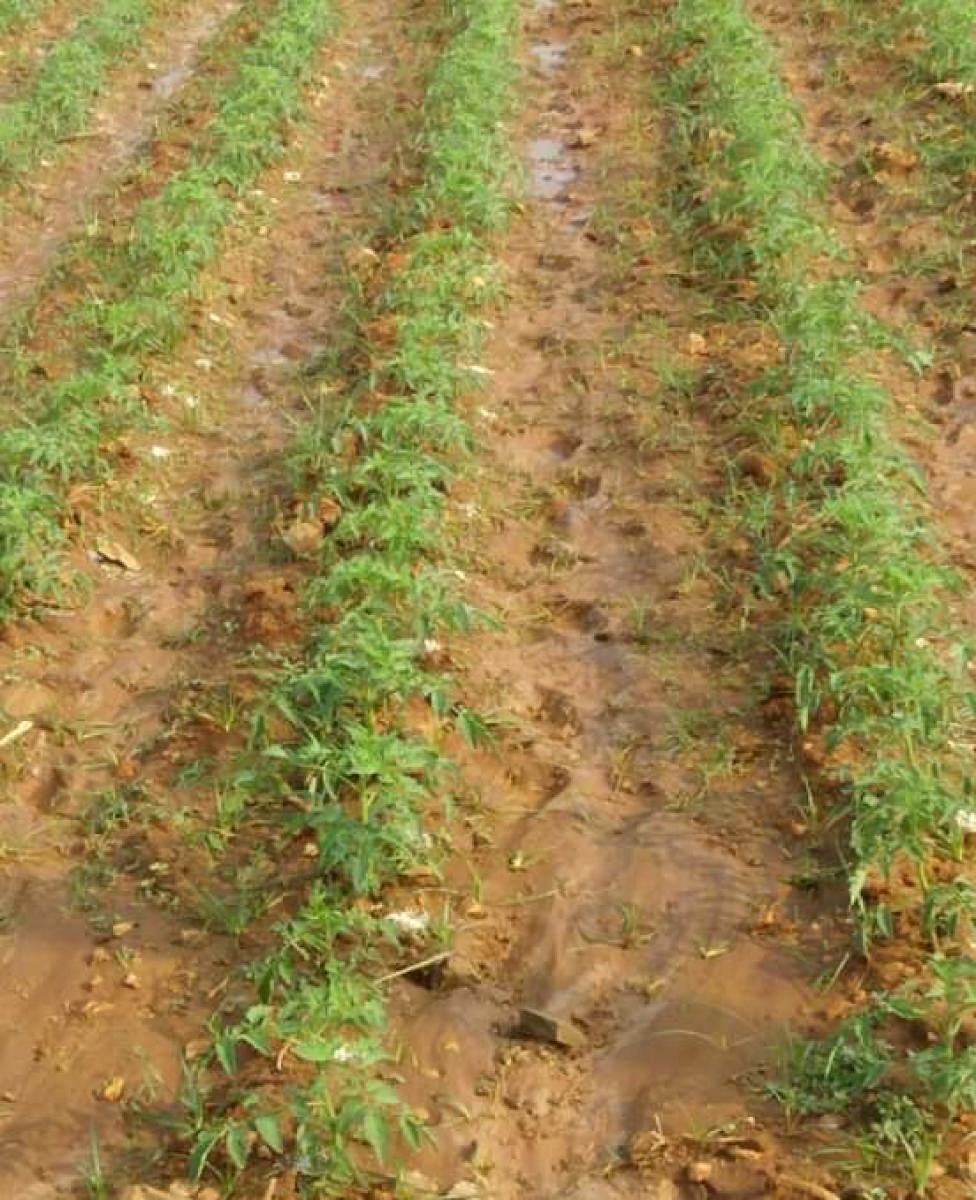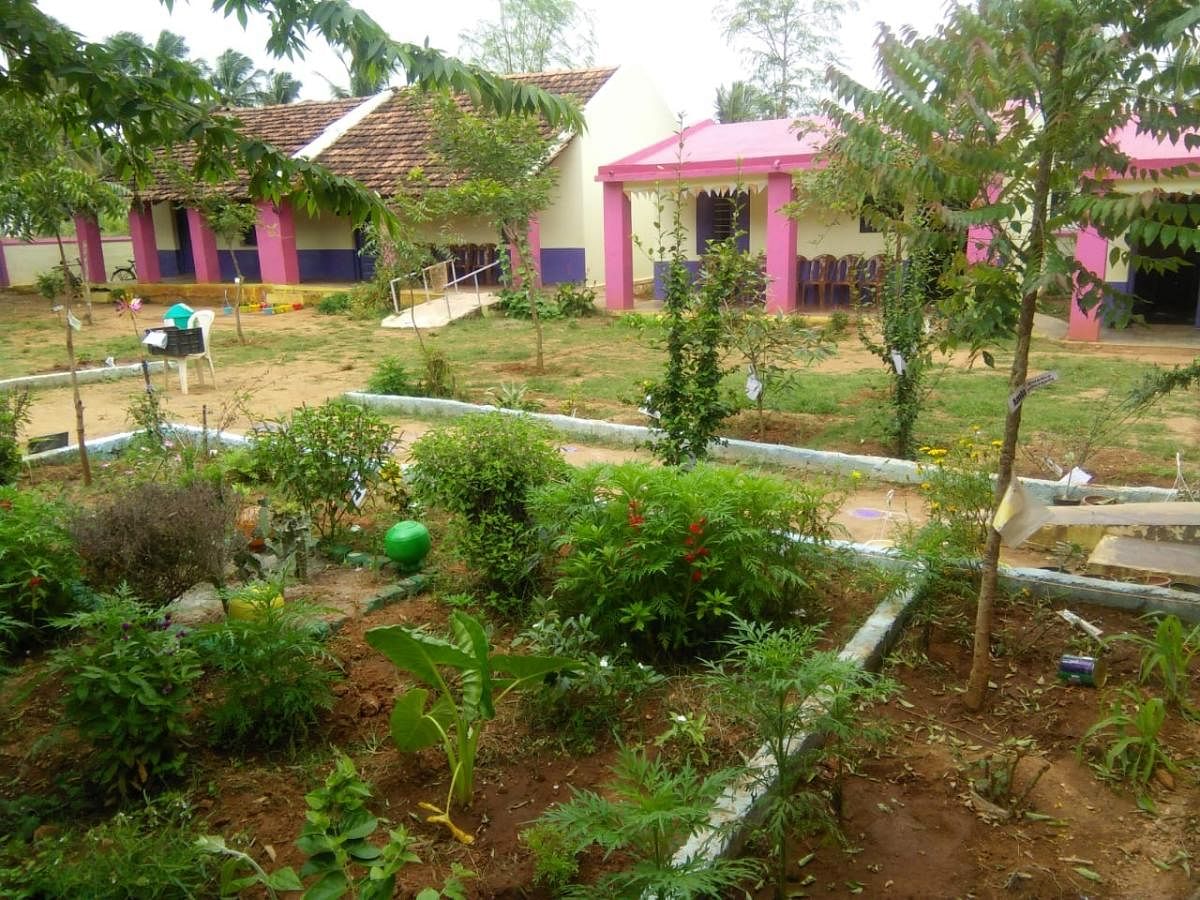
At a juncture when many government schools are facing the threat of closure, the Government Higher Primary School Devagalli in Hunsur taluk has made a difference through its eco-friendly initiatives. Though it is located in a remote area, the efforts of its teachers and students have kept it vibrant and energetic.
The enthusiastic young farmers take part in various initiatives like growing vegetables in their kitchen garden under the guidance of their teachers. They have cultivated millets and Rajamudi rice, a red rice variety, besides vegetables.
Beyond horizons
The student farmers are not only producing what is required for their meal in the school but are trying to popularise a traditional variety of rice - Rajamudi, which was once commonly grown in Mysuru and Hassan regions.
Said to be the favourite rice variety of the Wadiyars of Mysuru, Rajamudi’s cultivation has shrunk due to various reasons. Along with this traditional rice, they also grow millet varieties such as foxtail, kodo and barnyard.
G R Shashikala, a science teacher, introduced the concept of kitchen garden as a part of her project at the District Institute for Education and Training (DIET) in Mysuru. Among many concepts, she selected the concept of agriculture under the programme ‘Connecting home to school’.
“Initially I took this initiative as a part of my project. But later, it received a positive response from students, parents and villagers. We have divided students into different teams like shakthi and shrama. In the morning, before the commencement of class or in the evening after the class, students work in their kitchen garden. Inspired by the activities of the children, most of them started growing vegetables in their home too. Sometimes, they gift vegetables grown in their garden to the school,” says Shashikala.
To introduce different varieties of millets to students, in association with Mysuru-based Nisarga Trust, the school has taken up its cultivation. “We have introduced every step of cultivation to students from sowing to harvest. Students themselves collect and preserve seeds for the next season,’’ Shashikala explains.
Apart from millets and Rajamudi rice, the students have grown different types of vegetables and medicinal plants like ginger, garlic, lemon, aloe vera, etc. “It made learning science easier for them,” says Shashikala.
In order to introduce these crop varieties to the general public, the school organises a fest called, Siridhanya Mela when students exhibit a variety of seeds and crops. The event also provides students with an opportunity to interact with local farmers and subject experts.
Ripple effect
Inspired by the school’s initiative, a few farmers have taken the students to their fields to have direct exposure to the techniques of cultivation. After learning the skills of farming and collecting seeds from local farmers, students have grown cotton, tomato and other crops.
These young farmers prepare vermicompost using vegetable waste and leaves. This will be used as a fertiliser to the garden. The school has adopted rainwater harvesting technology. There are two rainwater harvesting pits in the garden and a tank to collect rainwater. Drip irrigation technology has also been adopted in the garden to teach the importance and conservation of water to the students.
Tanuja, a Class 5 student, says, “I grow vegetables and have planted a few fruit saplings. I feel happy to grow these saplings in my garden.” Tanuja’s father also feels proud of the school and its achievement.
More than half an acre of land in the school premises has been utilised for farming. For this initiative, the school has bagged the district-level ‘Parisara Mitra Shaale’ award for last year.
